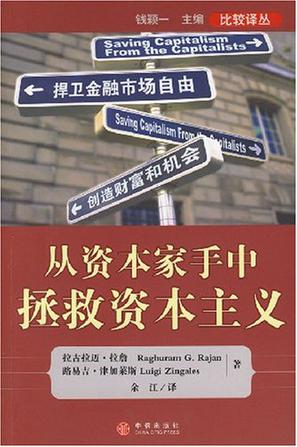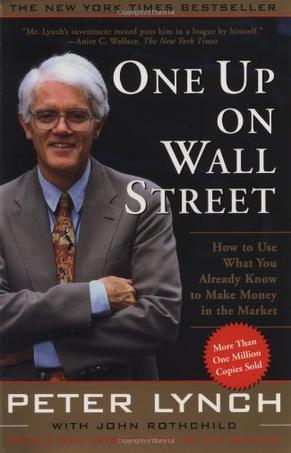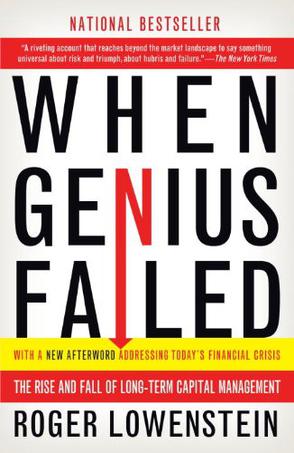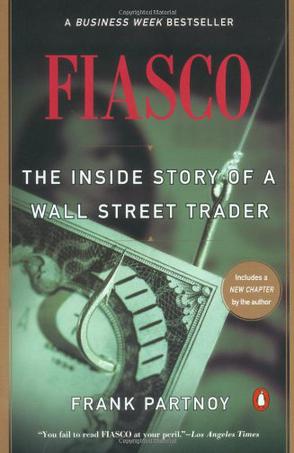-

从资本家手中拯救资本主义
从资本家手中拯救资本主义:捍卫金融市场自由,创造财富和机会,ISBN:9787508601670,作者:(美)拉古拉迈·拉詹(Raghuram G.Rajan),(美)路易吉·津加莱斯(Luigi Zingales)著;余江译 -

One Up On Wall Street
Book Description THE NATIONAL BESTSELLING BOOK THAT EVERY INVESTOR SHOULD OWN Peter Lynch is America's number-one money manager. His mantra: Average investors can become experts in their own field and can pick winning stocks as effectively as Wall Street professionals by doing just a little research. Now, in a new introduction written specifically for this edition of One Up on Wall Street, Lynch gives his take on the incredible rise of Internet stocks, as well as a list of twenty winning companies of high-tech '90s. That many of these winners are low-tech supports his thesis that amateur investors can continue to reap exceptional rewards from mundane, easy-to-understand companies they encounter in their daily lives. Investment opportunities abound for the layperson, Lynch says. By simply observing business developments and taking notice of your immediate world -- from the mall to the workplace -- you can discover potentially successful companies before professional analysts do. This jump on the experts is what produces "tenbaggers," the stocks that appreciate tenfold or more and turn an average stock portfolio into a star performer. The former star manager of Fidelity's multibillion-dollar Magellan Fund, Lynch reveals how he achieved his spectacular record. Writing with John Rothchild, Lynch offers easy-to-follow directions for sorting out the long shots from the no shots by reviewing a company's financial statements and by identifying which numbers really count. He explains how to stalk tenbaggers and lays out the guidelines for investing in cyclical, turnaround, and fast-growing companies. Lynch promises that if you ignore the ups and downs of the market and the endless speculation about interest rates, in the long term (anywhere from five to fifteen years) your portfolio will reward you. This advice has proved to be timeless and has made One Up on Wall Street a number-one bestseller. And now this classic is as valuable in the new millennium as ever. From Publishers Weekly The authors argue that average investors can beat Wall Street professionals by using the information gleaned from everyday life. "Investors will be able to put the shrewd insights presented to good use," remarked PW. 200,000 first printing. Book Dimension length: (cm)20.6 width:(cm)14 -

Options, Futures and Other Derivatives (6th Edition)
Designed to bridge the gap between theory and practice, this successful book is regarded as "the bible" in trading rooms throughout the world. The books covers both derivatives markets and risk management, including credit risk and credit derivatives; forward, futures, and swaps; insurance, weather, and energy derivatives; and more. For options traders, options analysts, risk managers, swaps traders, financial engineers, and corporate treasurers. -

When Genius Failed
On September 23, 1998, the boardroom of the New York Fed was a tense place. Around the table sat the heads of every major Wall Street bank, the chairman of the New York Stock Exchange, and representatives from numerous European banks, each of whom had been summoned to discuss a highly unusual prospect: rescuing what had, until then, been the envy of them all, the extraordinarily successful bond-trading firm of Long-Term Capital Management. Roger Lowenstein's When Genius Failed is the gripping story of the Fed's unprecedented move, the incredible heights reached by LTCM, and the firm's eventual dramatic demise. Lowenstein, a financial journalist and author of Buffett: The Making of an American Capitalist, examines the personalities, academic experts, and professional relationships at LTCM and uncovers the layers of numbers behind its roller-coaster ride with the precision of a skilled surgeon. The fund's enigmatic founder, John Meriwether, spent almost 20 years at Salomon Brothers, where he formed its renowned Arbitrage Group by hiring academia's top financial economists. Though Meriwether left Salomon under a cloud of the SEC's wrath, he leapt into his next venture with ease and enticed most of his former Salomon hires--and eventually even David Mullins, the former vice chairman of the U.S. Federal Reserve--to join him in starting a hedge fund that would beat all hedge funds. LTCM began trading in 1994, after completing a road show that, despite the Ph.D.-touting partners' lack of social skills and their disdainful condescension of potential investors who couldn't rise to their intellectual level, netted a whopping $1.25 billion. The fund would seek to earn a tiny spread on thousands of trades, "as if it were vacuuming nickels that others couldn't see," in the words of one of its Nobel laureate partners, Myron Scholes. And nickels it found. In its first two years, LTCM earned $1.6 billion, profits that exceeded 40 percent even after the partners' hefty cuts. By the spring of 1996, it was holding $140 billion in assets. But the end was soon in sight, and Lowenstein's detailed account of each successively worse month of 1998, culminating in a disastrous August and the partners' subsequent panicked moves, is riveting. The arbitrageur's world is a complicated one, and it might have served Lowenstein well to slow down and explain in greater detail the complex terms of the more exotic species of investment flora that cram the book's pages. However, much of the intrigue of the Long-Term story lies in its dizzying pace (not to mention the dizzying amounts of money won and lost in the fund's short lifespan). Lowenstein's smooth, conversational but equally urgent tone carries it along well. The book is a compelling read for those who've always wondered what lay behind the Fed's controversial involvement with the LTCM hedge-fund debacle. --S. Ketchum -

Fiasco
在线阅读本书 FIASCO is the shocking story of one man's education in the jungles of Wall Street. As a young derivatives salesman at Morgan Stanley, Frank Partnoy learned to buy and sell billions of dollars worth of securities that were so complex many traders themselves didn't understand them. In his behind-the-scenes look at the trading floor and the offices of one of the world's top investment firms, Partnoy recounts the macho attitudes and fiercely competitive ploys of his office mates. And he takes us to the annual drunken skeet-shooting competition, FIASCO, where he and his colleagues sharpen the killer instincts they are encouraged to use against their competitiors, their clients, and each other. FIASCO is the first book to take on the derivatves trading industry--the most highly charged and risky sector of the stock market. More importantly, it is a blistering indictment of the largely unregulated market in derivatives and serves as a warning to unwary investors about real fiascos, which have cost billions of dollars. -

计量经济学基础(第四版)(上、下册)
《计量经济学基础(上下)》(第4版)十分重视基础知识的教学及训练,内容深入浅出。第四版新改进之处:(1)“线性回归的矩阵表述”部分有所压缩;(2)有关“计睛经济建模”的章节有所精简;(3)新增了“非线性回归模型”一章。(4)新增了一些“综例数据回归模型”的方面的材料。